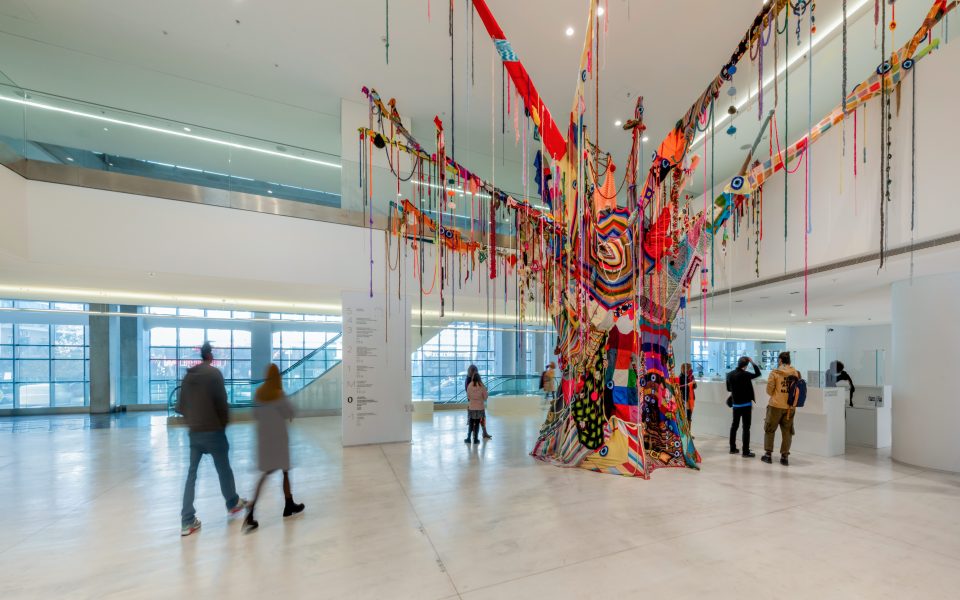Moving Greece beyond Acropolis

ATHENS – “Sea, sun and sex, with some Greek columns in the background,” said Poka Yio, the artistic director of the Athens Biennale. He was summing up the Greek government’s tourism campaigns in the 2000s as he led a visitor around a rambling former department store that was one of the sites of the 2021 edition. Part of the motivation for starting the biennale in 2007, he said, was to change that stereotype: “We wanted to put Athens on the contemporary art cultural map.”
Fifteen years later, Athens is on the international art crowd radar, though more as a curiosity than a major hub. Despite the pandemic, 40,000 visitors attended the monthlong Biennale, which ran through November. The organizers said 10,000 of those came from abroad.
“If the political powers understood how much Athens is being talked about as a contemporary cultural destination, they might pay more attention, because it means money and image,” said Katerina Gregos, the director of the National Museum of Contemporary Art, known as EMST. But contemporary art, she added, is relatively new to the Greek scene. “We have been living under the shadow of the Acropolis for a long time,” she said.
Ms Gregos was referring to the cultural dominance of Greece’s classical heritage, which attracts most of the sector’s state funding.
“It’s understandable,” she said. “When you have such an incredible cultural heritage to safeguard, it’s an enormous responsibility, and we are a small country with finite finances.”
As a result, she said, there has been very little government support for contemporary visual art. Instead, the gap is filled by private institutions like the Deste, Neon, Onassis and Stavros Niarchos foundations.
Yet these private sector initiatives, whatever their success, do not “substitute the need for a public policy,” Ms Gregos said.
The Greek government seems lately to agree. In July 2019, Nicholas Yatromanolakis, a Harvard graduate, was appointed secretary for contemporary culture, before being promoted at the start of 2021 to the culture minister’s deputy, responsible for contemporary culture.
One of Mr Yatromanolakis’s first projects was to get EMST open quickly. The museum, which was founded in 2000, was a nomadic operation for 15 years before a 1957 former brewery in central Athens was chosen as its site. But long delays in construction and financing meant it wasn’t fully operational until just before the pandemic broke out in early 2020.
Contemporary cultural projects in Greece are currently allocated around a quarter to a third of the culture budget – which has averaged around $400 million for the last seven years – while the rest is allocated to the classical heritage sites. It is a relatively small amount when spread between heritage projects, the national theaters and museums, and contemporary culture, said Yerassimos Yannopoulos, a lawyer and board member of EMST.
Afroditi Panagiotakou, the director of culture at the Onassis Foundation, said that the lack of focus on contemporary culture in Greece was the reason for creating the Onassis Cultural Center. That building, with its two theaters and exhibition spaces, opened in 2011. “We were in an economic crisis and the Greek state simply didn’t have the means,” she said.
But successfully supporting contemporary art requires more than just money, she added. “Ultimately the people who change the scene are the artists themselves,” she said. “Our role is to support them, work with them.”
Athens might not have financial power, Mr Yio said, but with its influx of migrants and artists, it was a rising metropolis, “a counterbalance to the London-Paris-Berlin tripod.” Greeks, he added, have never had “a bourgeois understanding” of art. “Modernism was missed here, and we are now trying to make huge leaps.”
This article originally appeared in The New York Times.






